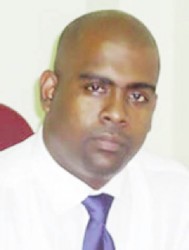Thirteen days after he was written to by the Private Sector Commission (PSC) about urgently ensuring equitable access to the broadcast media for political parties, President Donald Ramotar has replied but without giving the assurance that had been sought.
While the PSC had referred in the letter to the broadcast media in general, sources say the main bone of contention was the limited access of the opposition parties to the state broadcaster NCN.
In the reply sent on April 1, 2015 to Chairman of the PSC, Ramesh Persaud, Ramotar thanked the PSC for its interest while stating that equitable access is catered for via “clear and detailed” provisions in Part IV of the current Broadcasting Act 2011. However, sources have noted that since its promulgation, the requisite regulations for the functioning of the Act have not been issued.

The PSC letter had also adverted to the extant regulations in South Africa governing access to the broadcast spectrum and offering these as a possible model for Guyana.
Ramotar in his reply said “While I appreciate the Regulations like those of South Africa may be necessary the question is whether any Regulations can be promulgated in this period before elections, in the absence of a sitting Parliament,” adding that he would have to seek legal advice.
When contacted yesterday, Persaud told Stabroek News that he was pleased that the two major groups contesting the election were having their campaign advertisements aired on NCN.
The main opposition parties, APNU and the AFC have complained for several years now about limited access to NCN for their advertisements and party broadcasts. They have also complained about poor coverage of their fora and speeches.
Following a meeting with editors of the print and broadcast media on March 27, the PSC also called for transparency by the broadcast media for spots and spaces that will be made available for political advertisements and for transparency in the pricing of such allocations. Up to the date of that meeting, Ramotar had not replied to the PSC letter of March 19.
The problem of opposition access to NCN had also been raised by international and local observer missions during past elections. Equitable access to the media by all parties was also listed by the US, UK and Canada in January this year among recommended improvements for the electoral process.
In the letter, which was copied to Chairperson of the Guyana National Broadcasting Authority, Bibi Shadick, the PSC noted that it is integrally involved in ensuring that the upcoming polls will be free and fair and it has been meeting with the United Nations agencies, Diplomatic Missions, the OAS and various other stakeholders involved in monitoring the elections.
The PSC informed Ramotar that the South African Broadcast Authority states that the purpose of the Regulations “is to prescribe the framework and guidelines under which Party Election Broadcast PEB (s) and Political Advertisements PA (s) shall be conducted and carried out by the Broadcasting Service Licensee (BSL) during the National and provisional election.”
A report from the Commonwealth Observer Group following the 2011 elections had singled out state-owned television, radio and print media, which it said, according to the Media Monitoring Unit, showed overt bias in favour of the ruling party in its coverage and news reporting.
“State-owned media was not alone in providing imbalanced reporting but bias by the state media was excessive,” the report said, noting that state-owned media had a responsibility to serve the interests of all citizens, “particularly as in some parts of the country it is the only media available.”





